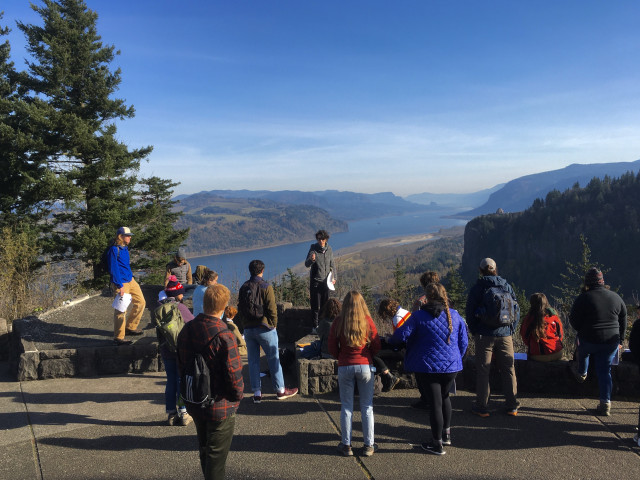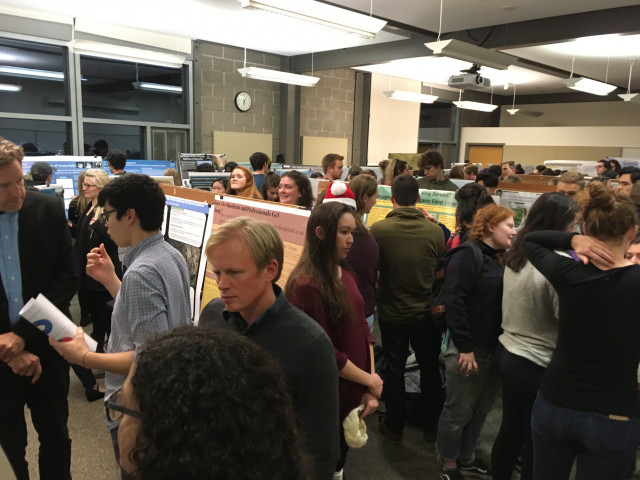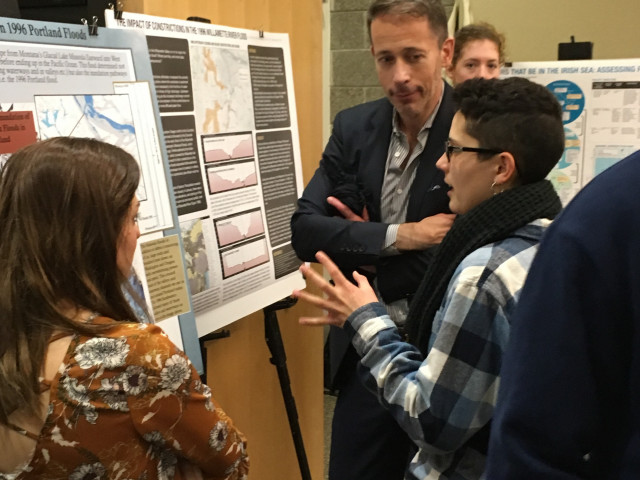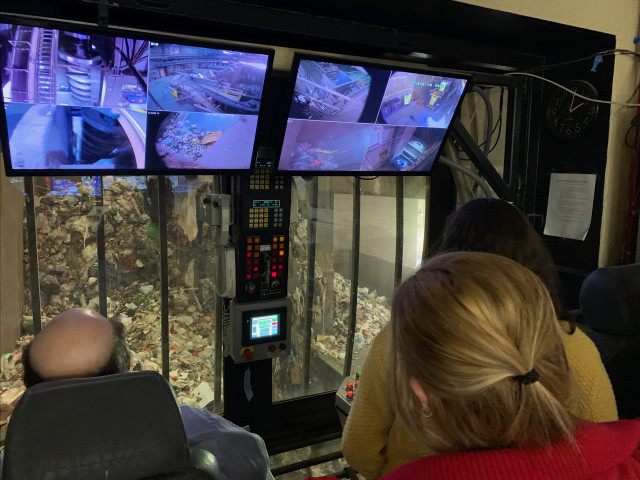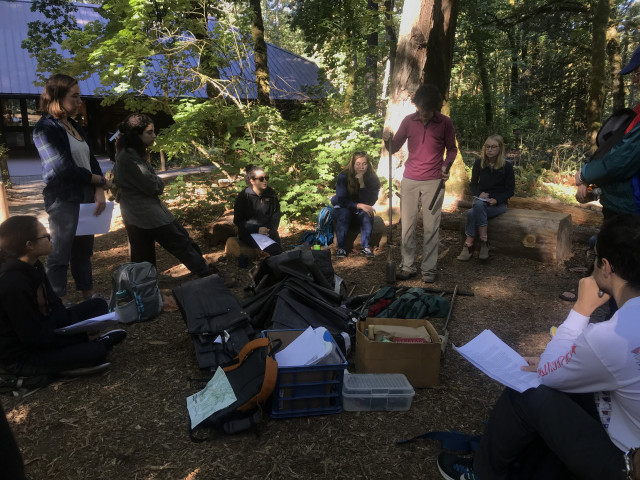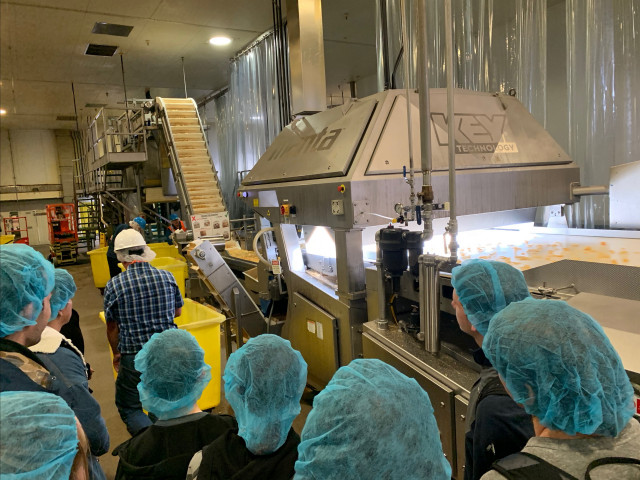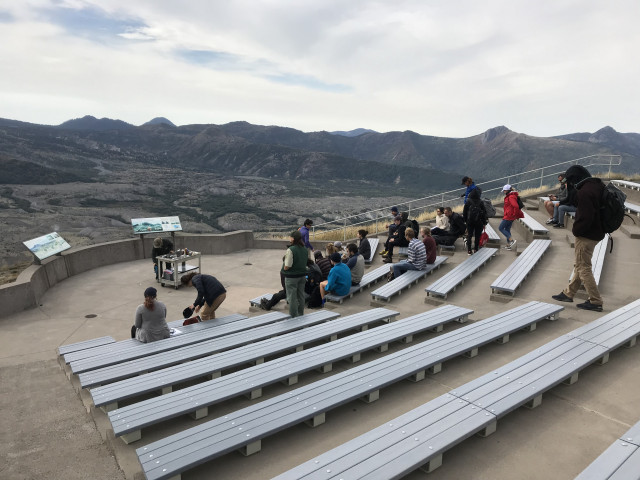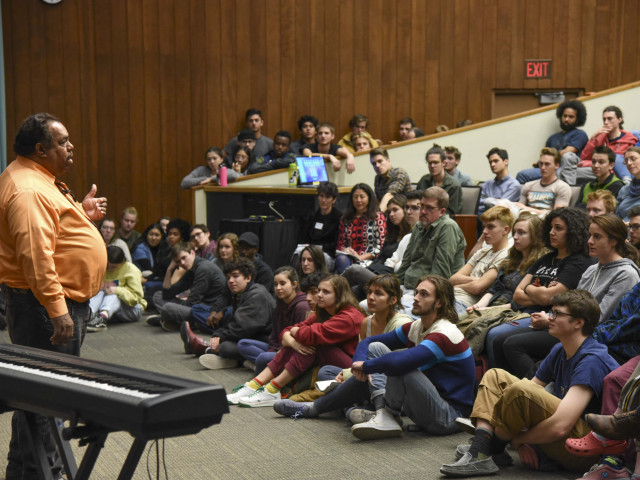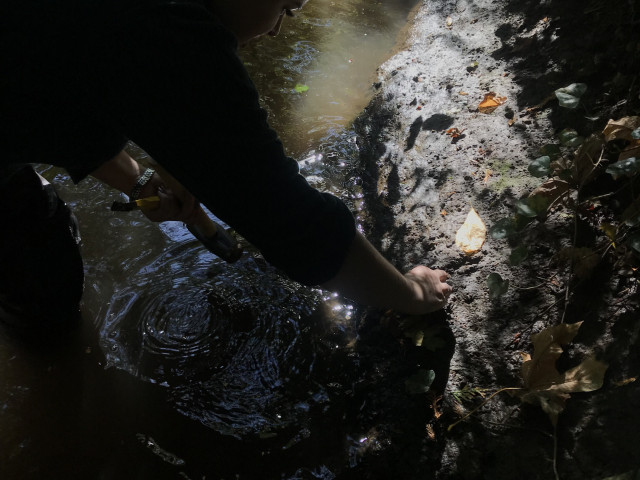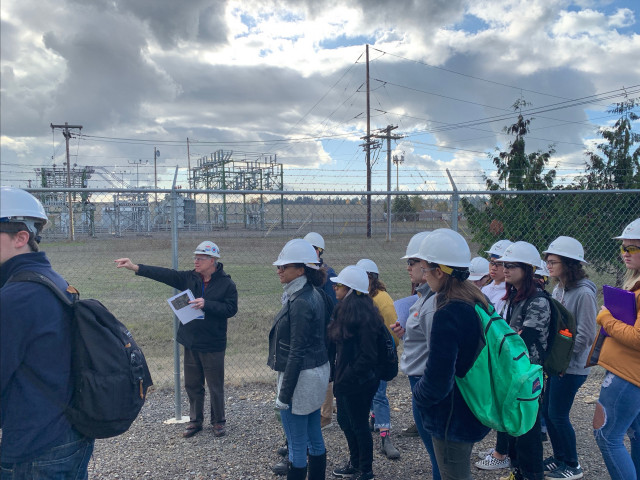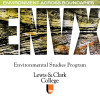More Info
Here you’ll find additional information related to the ENVS Program. Feel free to browse menu items at right.
You may also be interested in the history of ENVS. Lewis & Clark’s Environmental Studies (ENVS) Program was founded in 1997 by Professor Evan T. Williams. Evan championed a “tripod” approach, drawing upon the natural sciences, social sciences, and humanities. Sadly, Evan fell victim to cancer a few years after founding the program, but his legacy of intellectual diversity and making a difference lives on. In his honor, Lewis & Clark College commemorated Evan’s life and work with the Evan T. Williams Memorial Tree Walk in 2005.
The ENVS Program now has four dedicated faculty appointments: Jessica Kleiss, an oceanographer, climate scientist, and program Director; Liz Safran, a geologist and disasters researcher; Jim Proctor, a geographer; and Alana Rader, a geographer. ENVS also involves a range of participating faculty specializing in biology, chemistry, economics, history, international affairs, philosophy, sociology, and other fields.
We are at the cutting edge of environmental higher education in the U.S., having launched a number of large funded initiatives over the years; one such was Situating the Global Environment, featuring interdisciplinary environmental research by our students and faculty in sites throughout the world. A recent digital scholarship initiative, funded by an anonymous donor, supported envs.lclark.edu, a site where our students shared their work with a larger public audience during spring and fall semesters 2020.
Our students graduate with a background in environmental science situated in a broader understanding of cultural, political, and other key dimensions of environmental issues, plus skills and experience they apply to professional opportunities, graduate study, and effective environmental action.
- Professor Liz Safran's Environmental Geology class takes a field trip to the Columbia River Gorge.
-
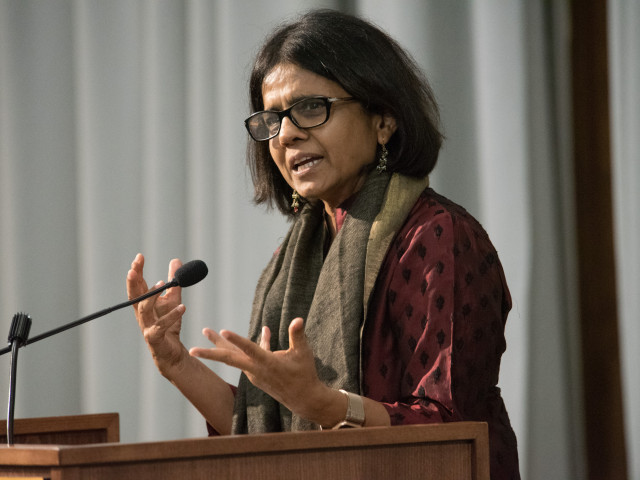 Sunita Narain presents the keynote address at the 22nd annual ENVX Symposium. Narain spoke on “The New Green Deal for a Global Compact: Learning to Do Things Differently for Inclusive Futures.”
Sunita Narain presents the keynote address at the 22nd annual ENVX Symposium. Narain spoke on “The New Green Deal for a Global Compact: Learning to Do Things Differently for Inclusive Futures.” -
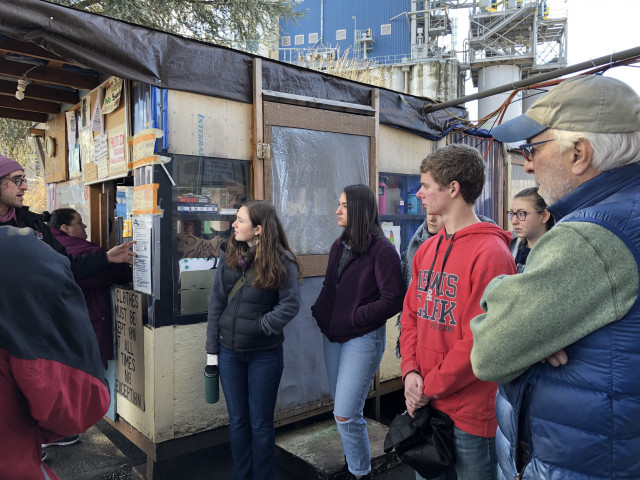 ENVS Students visit Right to Dream, Too, a space that provides refuge and a safe space to rest or sleep undisturbed for Portland's unhoused community. Students participated in a full-day engagement with stakeholders involved in issues of homelessness as part of the spring symposium events, Engaging Across Differences.
ENVS Students visit Right to Dream, Too, a space that provides refuge and a safe space to rest or sleep undisturbed for Portland's unhoused community. Students participated in a full-day engagement with stakeholders involved in issues of homelessness as part of the spring symposium events, Engaging Across Differences. - Guests of and students in the Environmental Studies Program look at student-designed posters at the Fall 2018 Poster Celebration
-
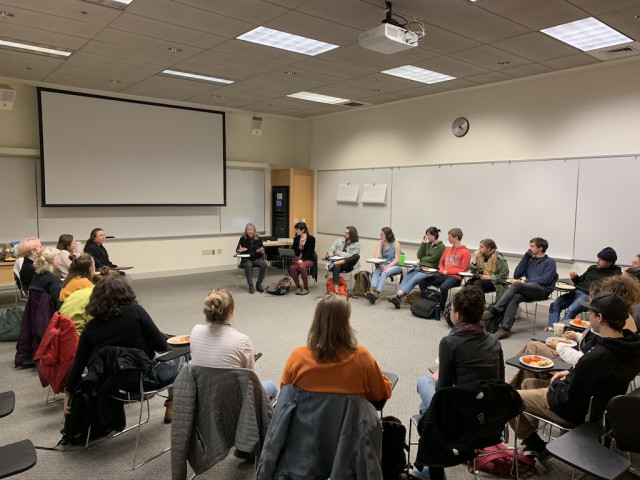 Students practice communicating with open dialogue to discuss their different viewpoints in a workshop with Robin Teater from Healthy Democracy. This skill can help address controversial environmental problems with many stakeholders and many different perspectives.
Students practice communicating with open dialogue to discuss their different viewpoints in a workshop with Robin Teater from Healthy Democracy. This skill can help address controversial environmental problems with many stakeholders and many different perspectives. - CAS Dean Bruce Suttmeier talks with Climate Science students at the Fall 2018 Poster Celebration.
- Climate Science students visited Covanta Energy from Waste, a a waste solution for Marion county. In the process of burning the landfill refuse, Covanta reduces the volume of waste by 90%, resulting in ash that is used as landfill cover. They also recover ferrous and non-ferrous metals that are recycled. The plant produces about 13 MW of electricity. 3MW are used to run the facility, and the remaining power is fed back into the grid.
- Professor Liz Safran demonstrates an augering technique for sampling near-surface materials during fieldwork at Tryon Creek State Park, which is adjacent to the Lewis & Clark College campus.
- Climate Science students visit Kettle Brand, which produces potato chips and actively engages in sustainability initiatives. Touring this plant gave students first-hand glimpse at industrial energy use and production of goods and discussions with the spokesperson allowed us to see the decision-making process involved in corporate sustainability initiatives.
- Environmental Geology Students take a field trip to Mt. St. Helens in Fall 2018.
-
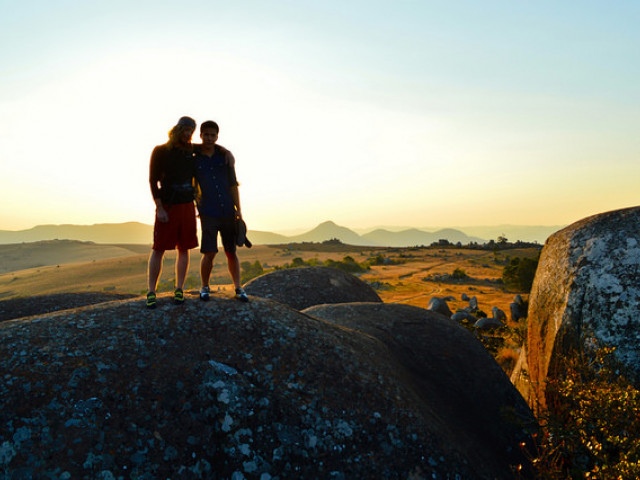 Malolotja Nature Reserve at sunset - Swaziland - Summer 2013
Malolotja Nature Reserve at sunset - Swaziland - Summer 2013 - Daryl Davis presents the keynote address, "Klan We Talk? Race, Environment, Empowerment, and Engagement" at the 21st annual Environmental Affairs Symposium in October 2018.
- Environmental Geology students use natural exposures created by streams to assess the bedrock composition of Tryon Creek State Park, which is adjacent to the Lewis & Clark College campus.
- In Fall 2018, Climate Science students toured the Portland General Electric (PGE) battery facility, which was built in 2010 as an experimental facility through a DOE-funded grant.
-
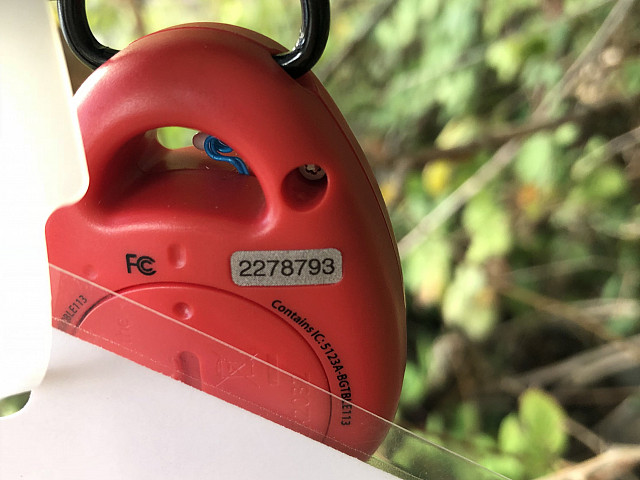 A Kestrel drop deployed at Cottonwood School to measure microclimate readings. Eight Kestrels were deployed at the school and four were deployed in nearby Cottonwood Bay for comparison during a community outreach conducted by Environmental Studies students in Fall 2018.
A Kestrel drop deployed at Cottonwood School to measure microclimate readings. Eight Kestrels were deployed at the school and four were deployed in nearby Cottonwood Bay for comparison during a community outreach conducted by Environmental Studies students in Fall 2018. -
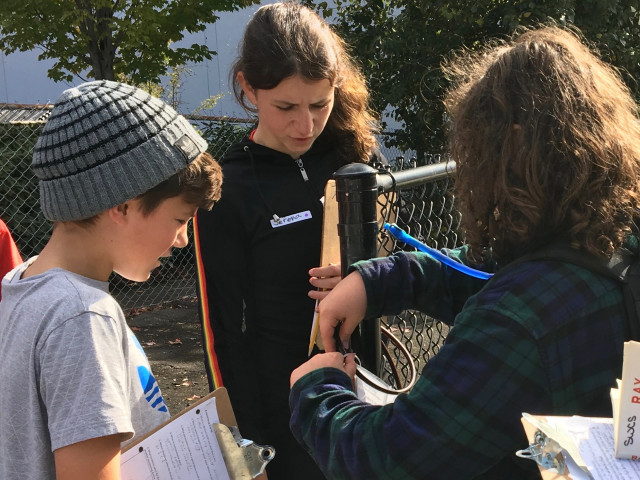 Middle school students at Cottonwood School deploy a Kestrel to measure microclimate readings during an outreach with Environmental Studies students.
Middle school students at Cottonwood School deploy a Kestrel to measure microclimate readings during an outreach with Environmental Studies students. -
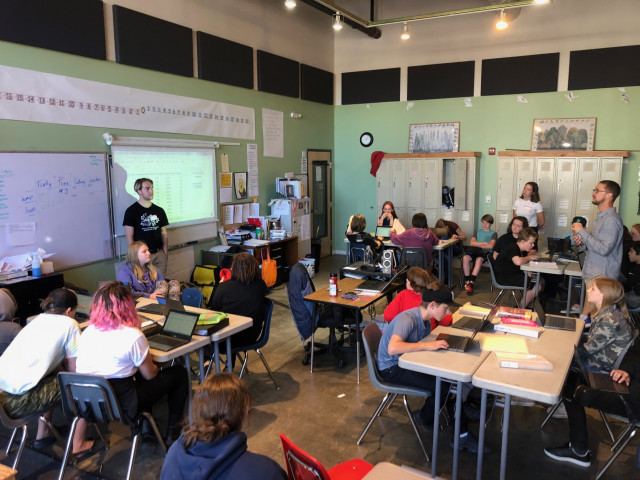 Environmental Studies Students discuss data results with students and a teacher from Cottonwood School during a community outreach in Fall 2018.
Environmental Studies Students discuss data results with students and a teacher from Cottonwood School during a community outreach in Fall 2018. -
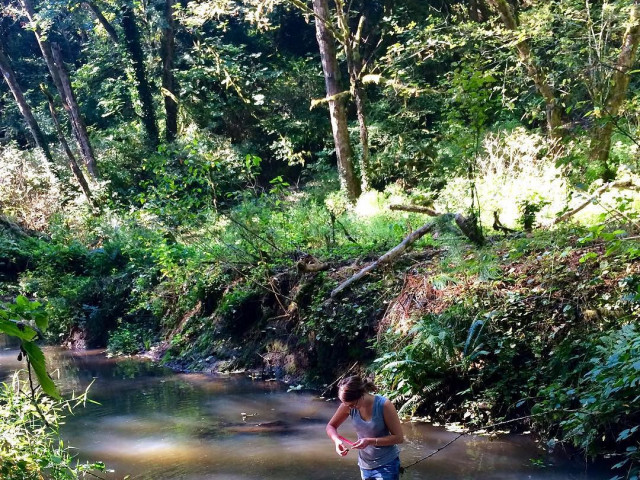 Measuring Pebble Size - Geology 150 Lab - Tryon Creek State Park - Fall 2015
Measuring Pebble Size - Geology 150 Lab - Tryon Creek State Park - Fall 2015 -
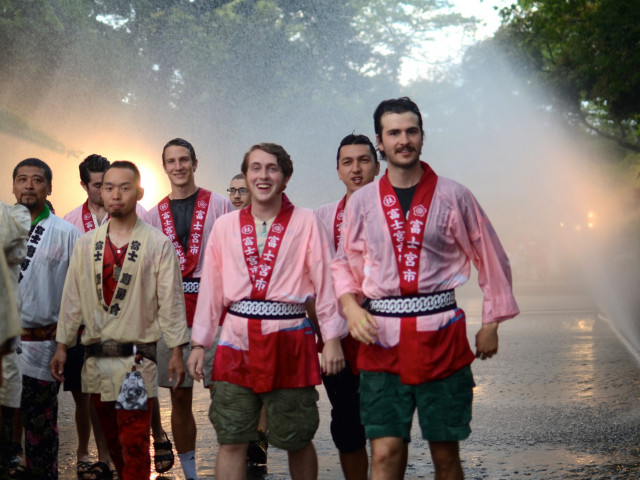 Ojinka Festival - Fuji - Summer 2014
Ojinka Festival - Fuji - Summer 2014 -
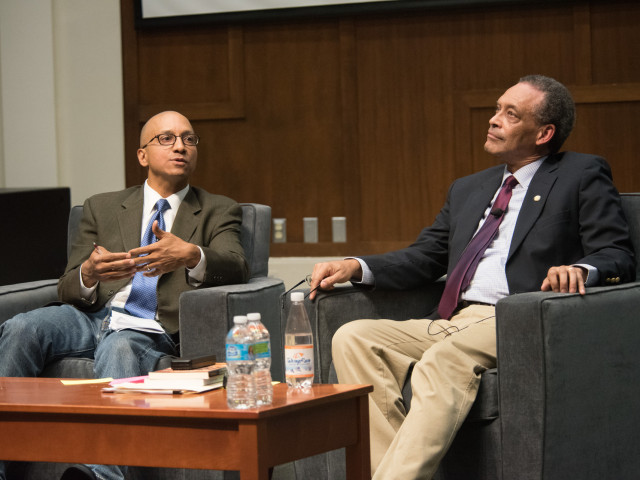 David Pellow and Chris Foreman during the Environmental Affairs Symposium keynote - Fall 2016
David Pellow and Chris Foreman during the Environmental Affairs Symposium keynote - Fall 2016 -
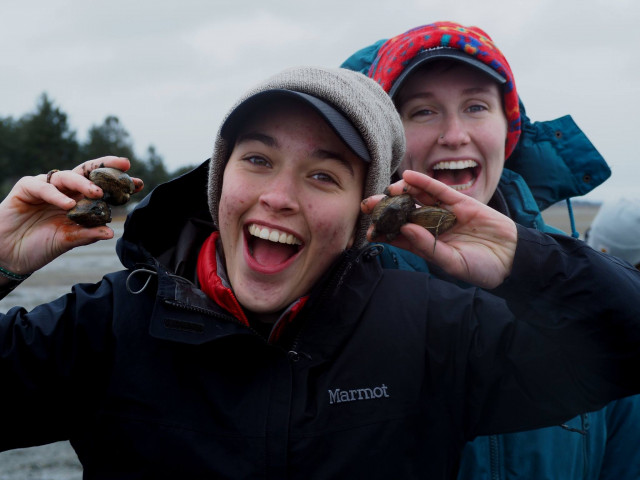 ENVS 330 field trip to Willapa Bay - Spring 2017.
ENVS 330 field trip to Willapa Bay - Spring 2017. -
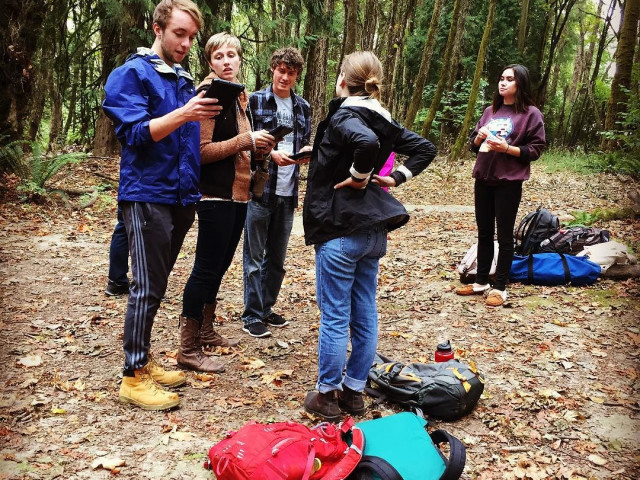 ENVS 220 microclimate lab ready to go - River View Natural Area - Fall 2015
ENVS 220 microclimate lab ready to go - River View Natural Area - Fall 2015 -
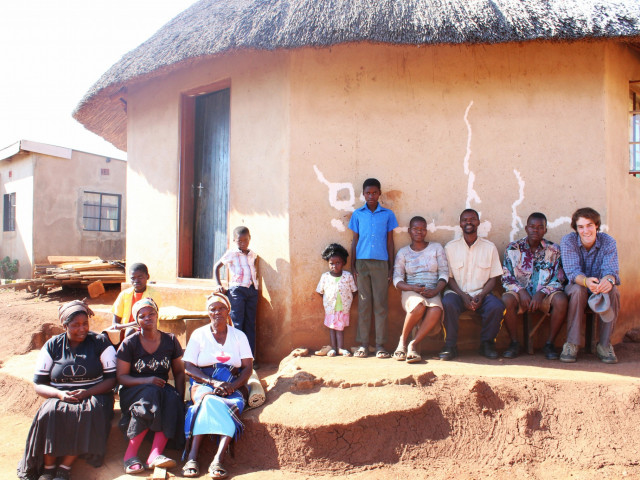 Robin with his homestay family in eGebeni Swaziland - Summer 2013
Robin with his homestay family in eGebeni Swaziland - Summer 2013 -
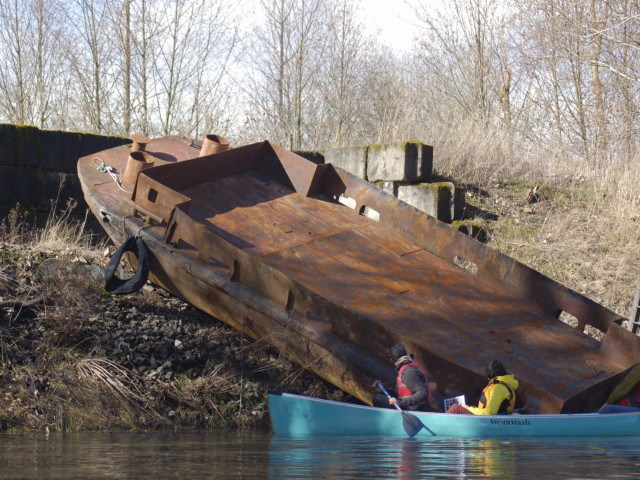 Students discover an old barge on the Columbia River Slough - ENVS 330 - Spring 2014
Students discover an old barge on the Columbia River Slough - ENVS 330 - Spring 2014 -
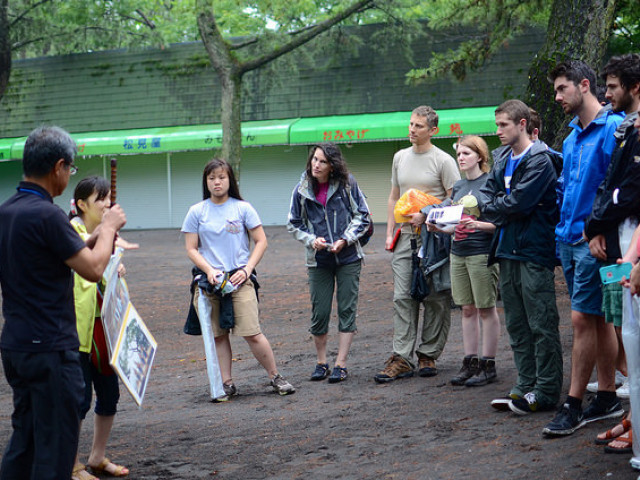 Miho-no-matsubara pine grove - Fuji - Summer 2014
Miho-no-matsubara pine grove - Fuji - Summer 2014 -
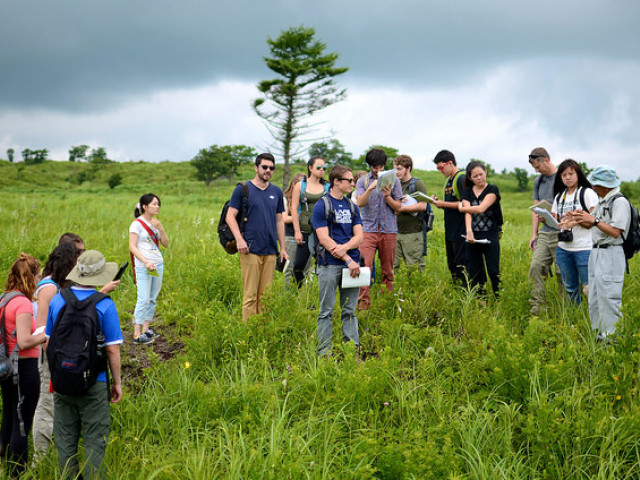 Field research in Nashighara grasslands - Fuji - Summer 2014
Field research in Nashighara grasslands - Fuji - Summer 2014 -
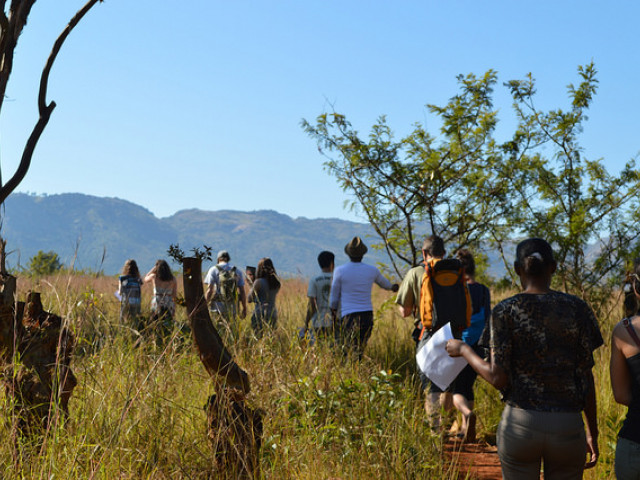 Community scavenger hunt in the Ezulwini Valley - Swaziland - Summer 2013
Community scavenger hunt in the Ezulwini Valley - Swaziland - Summer 2013 -
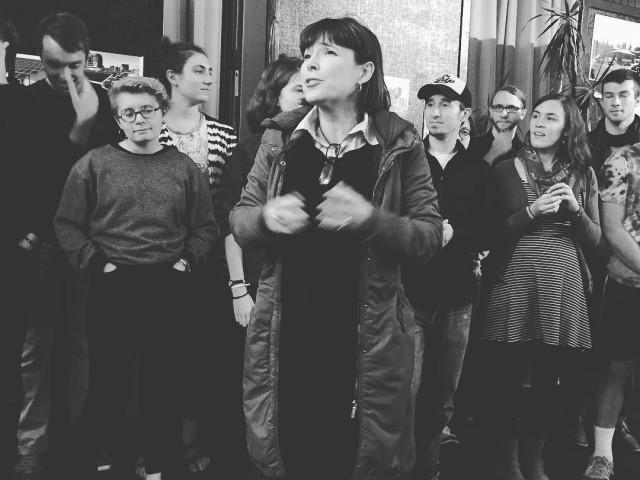 Bird Call Concerto - ENVX Sympopsium - Fall 2015
Bird Call Concerto - ENVX Sympopsium - Fall 2015
Environmental Studies is located in room 104 of Albany Quadrangle on the Undergraduate Campus.
MSC: 62
email envs@lclark.edu
voice 503-768-7790
Symposium Advisor Jim Proctor
Environmental Studies
Lewis & Clark
615 S. Palatine Hill Road
Portland OR 97219

